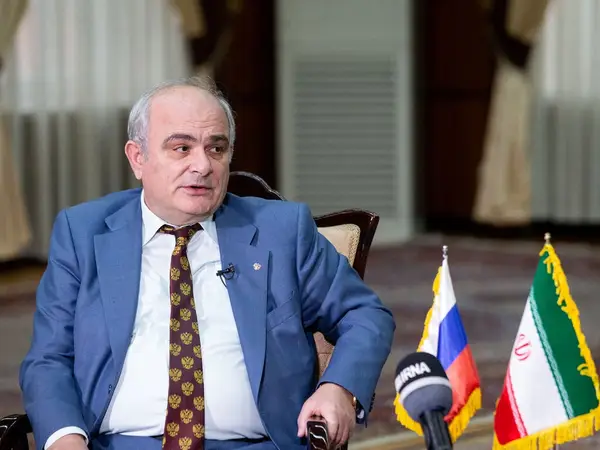The Russian envoy in Tehran has accused some Iranian media of provoking anti-Russian sentiments among Iranians over Moscow's role in Vienna nuclear talks.
In early March, during talks to restore the 2015 nuclear deal (JCPOA), Russia demanded exemption from the United States regarding Ukraine sanctions in all its dealings with Iran.
In an interview with Khabar Foori news website published Friday, Levan Dzhagaryan(Jagaryan) criticized Iranian media for alleging that Russia’s demand had disrupted the JCPOA talks in Vienna, which supposedly was near a successful conclusion.
Iranian media and the public had indeed expressed outrage at Russia’s demand, seeing it as a hurdle in the way of conclusion of an agreement and blackmail.
After Washington's refusal to budge, and Iranian media's strong criticism, Moscow appeared to back off and seek only guarantees related to the implementation of the 2015 deal rather than all economic relations as initially demanded.
"They are printing one-sided anti-Russian articles every day. It seems that they have turned into the Iran-based branch of the BBC's Persian radio," Dzhagaryan said. He singled out the reformist Etemad newspaper as an media outlet critical of Russia.
"They should ask the members of the Iranian negotiation team. They regularly express their gratitude that Russia and particularly our representative in the Vienna [talks], Mr. [Mikhail] Ulyanov helps a lot … We have always helped, are helping and will help together with our Chinese friends," the Russian envoy said.
In the interview with Khabar Foori, the Russian envoy in Tehran admitted that he was "very worried" about public opinion in Iran turning against Russia. "With the works that we do with your help, and the help of other independent media that aren't under Western influence and don't listen to the BBC, we try to explain [our views to them]," he said.
Dzhagaryan claimed that media in Iran couldn't be prevented from criticizing Russia because of freedom of expression in Iran. "Iran is much more advanced [in freedom of expression] than European countries."
Dzhagaryan also denied that Russia may consider itself Iran's rival in the energy market and therefore not happy with the prospects of US lifting sanctions on Iran which will allow Iranian crude oil to flow into international markets. "[Such allegations] are only a plot of the enemy that opposes [close] relations between Iran and Russia and are looking for excuses to cast a shadow on it."
Many Iranians have a historical bias and distrust towards Russia for historic interferences in Tsarist times in Iran's domestic affairs, wars fought between the two countries, and later, the continuation of the same policies by the Soviets.
Russia's proactive role in the Vienna talks also caused concerns among Iranians. The remarks and photos of the meetings posted by the Russian envoy on Twitter occasionally offered fuel for controversy and many alleged that Ulyanov was running the talks instead of the Iranian negotiators and making announcements on their behalf.
The Russian envoy to Tehran has become quite a controversial figure in Iran in recent months.
